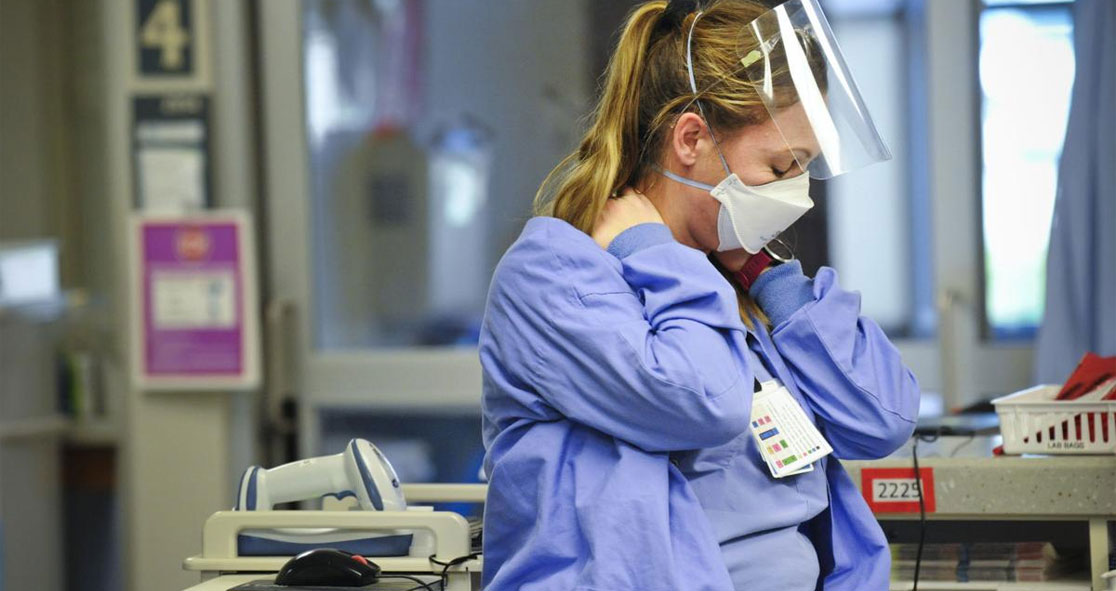The number of new COVID cases and hospitalizations continues to increase in Spain, putting a lot of strain on hospitals and threatening the mental health of frontline workers, including doctors and nurses.
In Hospital del Mar, Barcelona, the intensive care unit (ICU) capacity is almost full, with nearly 80% of ICU beds occupied by COVID patients.
The hospital’s ICU head Dr. Joan Ramon Masclans said, “There are young people of 20-something-years-old and older people of 80-years-old, all the age groups. This is very difficult, and it is one patient after another.”
Although authorities allowed the gathering of up to 10 people for Christmas and New Year celebrations, Dr. Masclans chose against joining his family and spent the holidays at home with his partner.
He said, “We did it to preserve our health and the health of others. And when you see that this isn’t being done (by others) it causes significant anger, added to the fatigue.”
A study published this month by Hospital del Mar found that at least 28% of health workers across Spain suffered major depression, according to Dr. Jordi Alonso, one of the chief investigators of the study.
Also, the study found that nearly 50% of participants had a “high risk of anxiety, post-traumatic stress disorder, panic attacks or substance- and alcohol-abuse problems,” according to ABC News.
In China, the levels of mental health disorders among frontline medical workers were higher than in Spain, with “50% reporting depression, 45% reporting anxiety, and 34% reporting insomnia,” according to the World Health Organization (WHO).
A UK survey conducted by the researchers of Royal College of Physicians (RCP) found that 64% of doctors reported feeling tired or exhausted and at least one in four required mental health support.
RCP President Dr. Andrew Goddard said, “It is pretty awful at the moment in the world of medicine. Hospital admissions are at the highest-ever level, staff are exhausted, and although there is light at the end of the tunnel, that light seems a long way away.”
The Spanish study found that nurses and nurses’ aides were the most affected group of health care workers, who are overwhelmingly women and often immigrants, as they had to spend more time with dying COVID patients and face poor working conditions and salaries. They also had a constant fear of infecting their own family members.
Spain has so far reported more than 2.6 million cases and over 55,440 deaths. However, Spanish health officials have for now ruled out the possibility of a new lockdown. Experts expressed concerns over the latest surge of patients, expecting that there could be detrimental effects on the mental health of medical staff across the nations.























